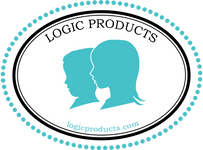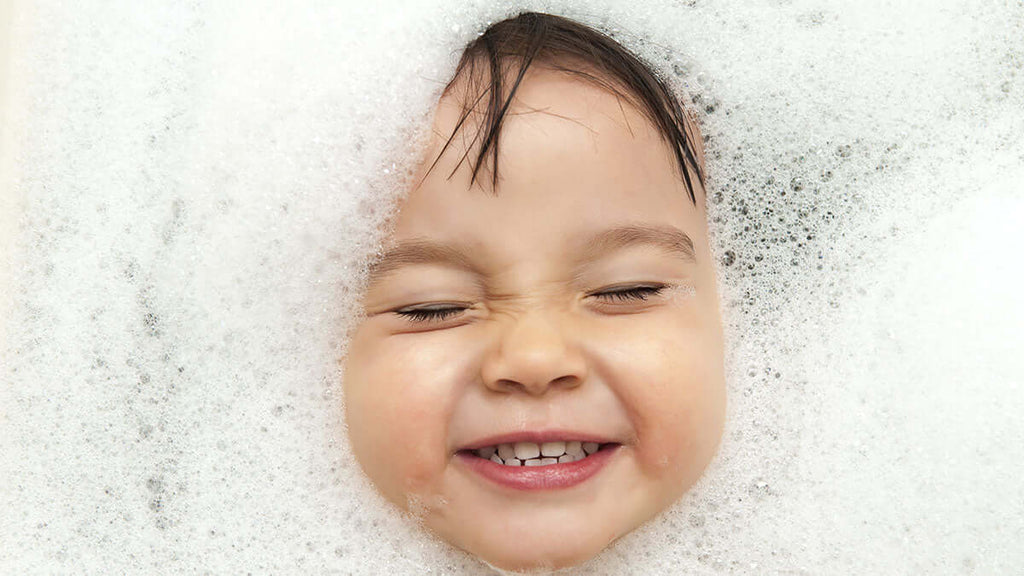Your skin is your largest organ. That goes for kids and dogs too. Many ingredients that are used topically, such as shampoos and soaps, are absorbed into the bloodstream via the skin. That’s why it’s so important to use safe, non-toxic products. Because children and dogs may have more sensitive, permeable skin than adults, it’s especially important to check the ingredients in their cleansing products. Sulfates are common additives that you may want to avoid.
1. What Are Sulfates
Sulfates are surfactants. They attract oil and water, which means that they can remove grease, grime, and dirt from hair, skin, and fur. The dirty molecules become suspended and locked within the water droplets. As the water droplets are rinsed away, they take the dirt with them.
2. Types of Sulfates
There are many types of sulfates. However, the two that you may want to avoid in your kids’ and dogs’ skincare products are:
- Sodium lauryl sulfate: Known as SLS. This ingredient is usually made from petroleum or palm oil. It’s a common ingredient in household cleaners and bath products.
- Sodium Laureth sulfate: Known as SLES. This surfactant is derived from coconut oil. As it undergoes a process of ethoxylation, SLES can become contaminated with 1,4 dioxane, a carcinogen. It’s impossible to know whether companies use vacuum technology to remove this contaminant. Still, SLES is considered to be less harsh on the skin and hair than SLS.
3. Are Sulfates Bad for You?
Although sulfates help you get clean, they don’t have the best reputation. Some reasons that sulfates in skincare products are a concern include:
- Irritation: Sulfates are known irritants. Sensitivity, redness, and discomfort can develop in proportion to the concentration of the ingredient. The chance of irritation increases with the amount of time that the product sits on the skin.
- Inflammation: This ingredient causes water loss in the outer layer of the skin and can lead to inflammation.
- Dryness: Sulfates are so good at their job that they can strip hair and skin of their natural oils, leading to dryness, flakiness, or irritation.
- Follicle damage: While it is clear that sulfates can form deposits on the hair follicles, it’s not clear if those deposits contribute to hair loss. Some people avoid sulfates just in case.
Some people avoid sulfates because they’re harmful to the environment. They increase soil and water acidification. Also, sodium lauryl sulfate that is derived from palm oil may contribute to the destruction of essential natural resources.
4. Should You Use SLS/SLES on Kids and Pets?
In conclusion, SLS and SLES have gotten a bad reputation. But, products that are SLS and SLES free are gentler on your children and furry family members.
Dogs groom themselves using their tongues. Therefore, anything that you use on their fur will eventually make its way into their mouths. Avoiding SLS and SLES in their bath products helps provide peace of mind, and helps decrease the risk of developing dry, irritated skin.
And, if you have ever tried to bathe a child, you know all about the potential eye irritation that can happen. Shampoos are bound to get into your kids’ eyes and mouths at times. Using gentler products keeps irritants out of their sensitive areas.
Lastly, shampoos must have surfactants in them in order to work. Those that contain SLS and SLES often have concentrations of sulfates between 10 and 25 percent. So, you can choose skincare products with other, less harmful, types of surfactants. These tend to be easier on your little ones’ delicate hair and skin. SLS/SLES-free products can also leave hair shinier, healthier and easier to manage. Whether your daily routine involves brushing out toddler tangles or grooming your pooch, using sulfate-free products infused with natural ingredients can be the best option to choose!

Sources
https://www.cleaninginstitute.org/understanding-products/science-soap/chemistry-cleaning
https://link.springer.com/article/10.1007/BF02261391
https://www.safecosmetics.org/get-the-facts/chemicals-of-concern/ethoxylated-ingredients/
https://www.medicalnewstoday.com/articles/327013
https://pubmed.ncbi.nlm.nih.gov/20634505/
https://ww2.arb.ca.gov/resources/sulfate-and-health
https://www.worldwildlife.org/pages/which-everyday-products-contain-palm-oil
https://www.healthline.com/health/beauty-skin-care/sulfates#safety


Leave a comment